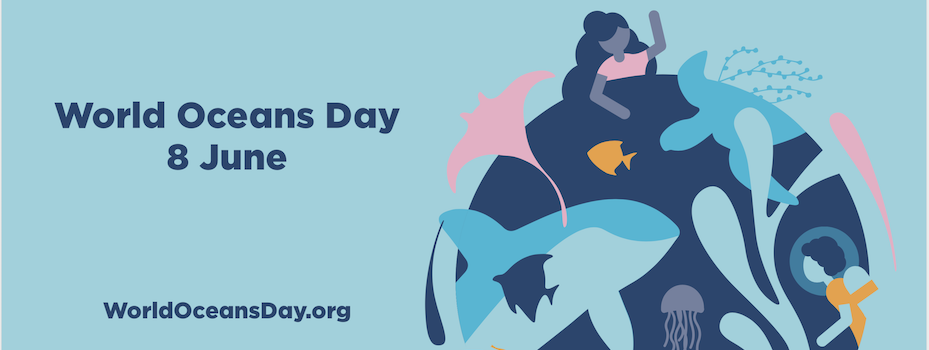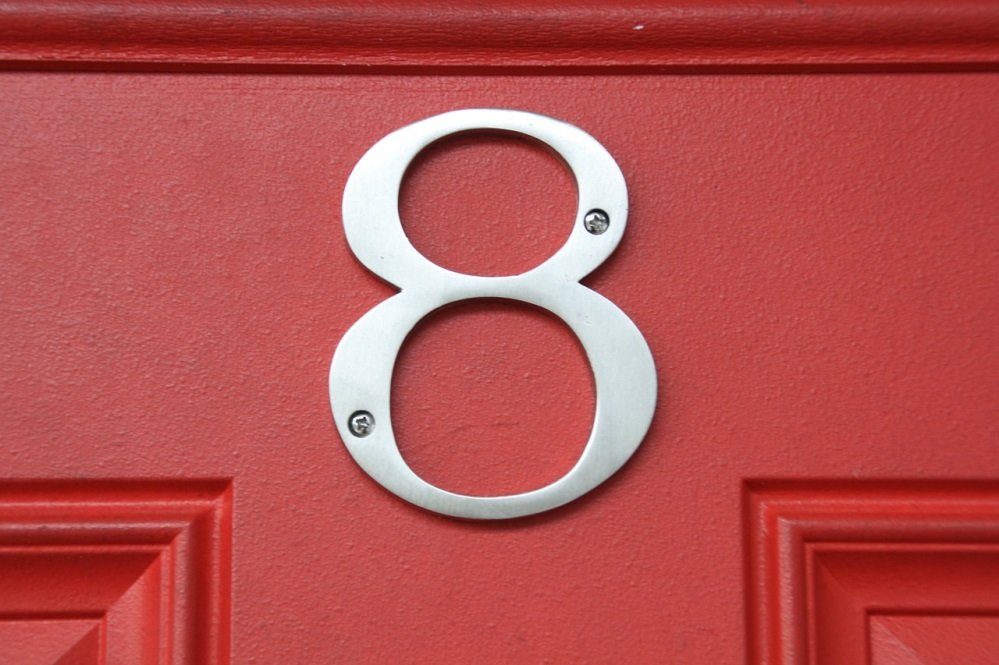
by Belinda Ollewagen | May 20, 2019 | water cooler
World Oceans Day is celebrated each year on June 8th. Officially recognised by the United Nations since 2008; on World Oceans Day people around the globe are asked to honour and celebrate one of our greatest natural resources, its importance in our lives and how each of us can protect it, no matter where we are.
And if you’re asking why we should celebrate the day, let’s remember it’s not just water from our water cooler that helps keep us alive, it’s also a healthy world ocean that’s critical to our survival, because it ‘generates most of the oxygen we breathe; helps feed us; regulates our climate; cleans our drinking water; offers a pharmacopoeia of potential medicines; and provides limitless inspiration’.
Last year World Oceans Day boasted 1,500 events held in 140 countries – these ranged from celebrations, cleanups and film screenings through to festivals, concerts and conferences; 5.5 billion impressions of #WorldOceansDay on Twitter and Instagram in the month leading up to June 8th; and 10,000 commitments made on social media to stop using single-use plastics in honour of the day.
If you want to show your support this year, you can do so in three easy steps.
- You can plan an event and download resources – there are wide variety of event ideas to choose from
- Register your events and activities
- Show your support on social media and make sure to tag #WorldOceansDay
Here’s hoping that the 2019 figures can outperform last year’s statistics – together we can make a difference! To quote arguably the greatest oceanographer of all times, Jacques Cousteau ‘The sea, the great unifier, is man’s only hope. Now, as never before, the old phrase has a literal meaning: we are all in the same boat.’

by Belinda Ollewagen | May 20, 2019 | water cooler, water dispenser
In previous blog posts we’ve covered studies that examined the effects of dehydration on performance, but what we’ve not looked at before is water invention studies i.e. giving water as opposed to withholding it. One such research paper is Effects of hydration status on cognitive performance and mood, by researchers, Masento and van Reekum. In their paper they list studies across a variety of different subject groups that examine the benefits brought about by a water intervention – all of which will make you want to get up and go over to the office water cooler for another glass of water!
Taken directly from the Masento et al research paper, here’s an excerpt from each intervention to illustrate how proactively drinking water improves performance:
DRINKING WATER IMPROVES VISUAL SUSTAINED ATTENTION
Young adults were assigned to a no-water, 120ml or 330 ml water condition; and asked to perform a rapid visual information-processing task.
The researchers found a dose related improvement in performance, with those in the 330 ml water condition performing the best of the three groups and the no-water group performing the worst.
DRINKING WATER IMPROVES SHORT-TERM MEMORY
School children aged between 7-9 years were given up to 250 ml of water to drink; and asked to perform a ‘spot the difference’ task.
The visual memory of the children who drank more water was significantly improved in comparison to those children who had drunk less.
DRINKING WATER IMPROVES SIMPLE REACTION TIME
Adults were asked to rate their thirst levels prior to the experiment; were assigned to a no-water or water supplementation condition; and asked to perform a simple reaction time task.
Thirsty individuals performed significantly worse in the no-water condition; with non-thirsty individuals exhibiting a relatively similar performance independent of water intake.
DRINKING WATER IMPROVES MOOD
Young adults were assigned to no-water or water supplementation conditions; and asked to perform a range of cognitive tasks and mood ratings.
Mood ratings were shown to significantly change when individuals were given water. Individuals reported feeling more ‘calm’ and ‘alert’ immediately after water consumption.
Masento and van Reekum conclude their paper with the following comment:
Accumulating evidence supports the notion that hydration state affects cognitive ability and mood. Severe dehydration has been shown to cause cognitive deficits such as short-term memory and visual perceptual abilities as well as mood disturbance, whereas water consumption can improve cognitive performance, particularly visual attention and mood.
In short, if you want to increase your productivity and improve your mood you need to visit your water cooler more often. And if your office is in need of more water dispensers, be sure to give AquAid a call, they’re the UK’s leading water cooler supplier with 23 branches nationwide, all dedicated to providing the same level of superior service.

by Belinda Ollewagen | May 13, 2019 | water cooler
It may be nearly 60 years since the inimitable Emily Post passed away, but her affect is still keenly felt in all things ‘etiquette’. Born in 1872, she was very much ahead of her time as her etiquette instruction included not only the drawing room, but business and politics as well. Her legacy lives on through her great-grandchildren, who all contribute to The Emily Post Institution on a regular basis.
Her great-grandson, Peter Post, specifically covers all things work-etiquette related. While we all know what constitutes good manners and how to behave while standing around the office water cooler catching up on everyone’s news, we sometimes need a little reminder of what constitutes good tech etiquette considering how invasive technology has become in our lives.
- Keep your mobile phone on silent
While your company policy may allow for personal phone calls, no one wants to be subjected to your Game of Thrones ring tone when you’ve stepped away from your desk, sans mobile.
- Do not wear headphones away from your desk
Listening to music or blocking out the surrounding noise may help you to be more productive, but make sure you remove the headphones before you leave your desk. Leaving them on while wandering through the office is anti-social and not very polite.
- Do not use someone else’s computer
While all the computers in the office might belong to the company, don’t be tempted to sit down at someone else’s computer to quickly check a fact. Privacy is important to all of us, and this includes the computers we work on.
- Limit laptop activity during meetings
While laptops are often taken into meetings for note-taking, don’t be tempted to check mail or work on something else while the meeting is on-going – it becomes quite obvious to those around you when you’re no longer focusing on the speaker.
- Do not email or text what could be said in person
While certain messages require a paper trail, many others don’t. Don’t be tempted to fall into the constant email or text message trap – particularly when the recipient is only two desks away from you. Technology is great, but it can very easily make us anti-social and too insular.
And last, but not least, if on your way to delivering that message you decide to stop at the water cooler for a drink and you finish the water, please make a point of refilling it – nothing’s worse than wanting or needing something, and the last person to use it hasn’t replenished it.
Always remember, manners maketh man.

by Fern Shaw | May 9, 2019 | water cooler
Spring can be a very iffy season in the UK. It can seem as if you need to leave the house dressed like you’re off on your hols in Antigua, Barbados, Finland or Thailand (all at the same time) but as the temperature begins to rise, you may also still be unsure whether your daily water consumption needs to stay the same as in winter, increase or decrease.
As we chatted about in a previous blog, dehydration can be tricky to identify when it’s cold and we’re bundled up.
But what about when it’s warmer? Should you change your hydration habits?
The simplest way to establish adequate hydration for each individual is to refer to a good drinking water chart (you’ll find one here) but what we may forget is that there are usually other factors that need to be taken into consideration, such as:
How do you travel to work? Walk, commute using public transport, drive yourself, cycle?
Working environment: do you work outside, indoors, how much you exert yourself daily?
Aside from the above, what level of exercise do you attain daily or weekly outside of work?
And of course, what’s the weather like? When it’s cooler, we tend to bundle up and if we’re in a climate controlled work environment, we may default on regular visits to the water cooler to replenish our water. When we’re busy, neglecting your water intake is easily done.
There’s also a tendency (understandably) to shed outer layers when the temperatures begin to rise, but as we still feel cool and aren’t perspiring too excessively, we may not feel the need to up our daily water intake just yet.
It’s precisely when we’re going through a change of season that we should pay careful attention to our hydration habits and adjust them accordingly.
One of the simplest ways to ensure appropriate hydration daily, irrespective of the season, is to install a water cooler at your premises. To do this, speak to us at AquAid, we’ll be happy to assist.

by Belinda Ollewagen | Apr 29, 2019 | instant tap, water cooler
“Coffee, coffee, coffee,
Coffee.
Coffee, coffee.
Everyone shut up.
Coffee.”
Our office loves coffee, and I don’t mean your garden variety kind of love affair with coffee, I mean your ‘until death us do part’ kind of passion, so we’re constantly at our instant taps brewing up another cup. We realise not everyone might be as infatuated with our favourite drink as we are, but to show we’re not alone in our adoration, here are a few interesting facts from the British Coffee Association.
- Coffee is the most popular drink worldwide with around two billion cups consumed every day.
- In the UK, we now drink approximately 95 million cups of coffee per day
- For an average cup of coffee consumed in the UK, up to 76% of its value is estimated to be produced in the UK
- The coffee industry creates over 210,000 UK jobs
- The Gross Value-Added contribution from the UK coffee industry to the economy is estimated to be £9.1 billion, whilst output contribution, including indirect and induced multiplier impacts, of £17.7 billion in 2017
- 80% of UK households buy instant coffee for in-home consumption, particularly those aged 65 and older
- Ground coffee and single-serve coffee pods are becoming increasingly popular, particularly amongst Millennials (aged 16 – 34) who account for 16% of all buyers.
- On the high street, café culture has also continued to boom, 80% of people who visit coffee shops do so at least once a week, whilst 16% of us visit on a daily basis
If you like the world’s most popular drink as much as we do, then you need to ensure you have instant taps installed in your canteen or breakout area – having hot water instantly at the ready is essential for us coffee-holics. Besides which, studies show that taking regular breaks also boosts energy, concentration and motivation so if you combine that with a cup of coffee, your Afternoon Poem may very well read:
“Coffee, coffee, coffee,
Coffee.
Coffee, coffee.
We love you all.
Coffee.”

by Belinda Ollewagen | Apr 29, 2019 | water cooler
We all know how important it is to take a turn past the water cooler and fill our glasses or bottles before carrying on with our day, but is the ‘drink eight glasses of water a day’ advice we hear so often accurate or not? In truth there is no hard and fast evidence to suggest that this one-size-fits-all approach is correct. Irrefutable however, is that bodies need sufficient hydration, but how much and how often is a debatable topic.
An early WebMD article states that the formula should be to drink between 0.5 and 1 ounce of water for each pound you weigh. According to the BBC a few years back, the average man weighs 83 kilograms and the average woman 70 kilograms – according to this formula then it means that Mr. Average should be drinking between 2.7 and 5.4 litres of water per day, while Ms. Average should be drinking between 2.3 and 4.6 litres per day. This is more than the one-size-fits-all 64 ounces (1.9 litres) per day suggested.
To illustrate another side of the argument, an article on Snopes goes a long way to refuting the standard 8×8 rule which, as an aside, no one seems to know the exact origin of, although researchers seem to think it probably came from a single paragraph in an obscure 1945 government report. Water Works also covers the misleading idea that one should not be drinking caffeinated drinks such as coffee, tea or soda, because of their diuretic effect on the body which could lead to dehydration. Researchers at the Center for Human Nutrition refuted this stating ‘one glass [of caffeinated beverage] provides about the same amount of hydrating fluid as a glass of water. The only common drinks that produce a net loss of fluids are those containing alcohol — and usually it takes more than one of those to cause noticeable dehydration, doctors say.’
In short, your body needs regular hydration to function properly and to be productive, but there is no magical quota or number of times you should be visiting the water cooler, so just use your common sense and do what works for you.






